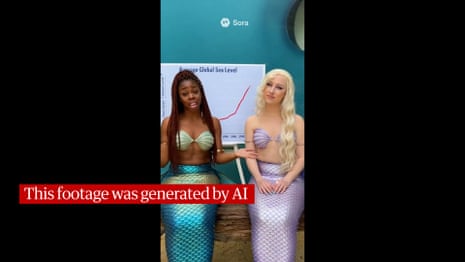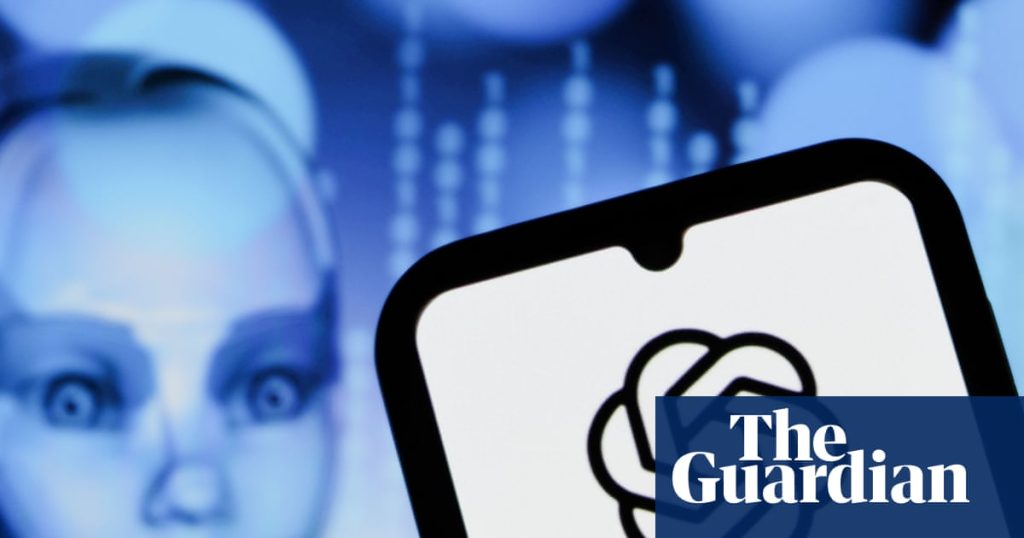OpenAI is promising to give copyright holders “more granular control” over character generation after its new app Sora 2 produced a flood of videos that depicted copyrighted characters.
Sora 2, a video generator powered by artificial intelligence, was launched last week on an invite-only basis. The app allows users to generate short videos based on a text prompt. The Guardian’s review of the feed of AI-generated videos last week showed copyrighted characters from shows such as SpongeBob SquarePants, South Park, Pokémon and Rick and Morty.
The Wall Street Journal reported last week that before OpenAI released Sora 2, the company told talent agencies and studios if they didn’t want their copyrighted material replicated by the video generator, they would have to opt out.
OpenAI told the Guardian content owners can flag copyright infringement using a “copyright disputes form”, but that individual artists or studios cannot have a blanket opt-out. Varun Shetty, OpenAI’s head of media partnerships, said: “We’ll work with rights holders to block characters from Sora at their request and respond to takedown requests.”

On Saturday, OpenAI CEO Sam Altman, said in a blog post that the company had been “taking feedback” from users, rights holders and other groups, and would make changes as a result.
He said rights holders would be given more “granular control” over the generation of characters, similar to how people can opt-in to share their own likeness in the app, but with “additional controls”.
“We are hearing from a lot of rightsholders who are very excited for this new kind of ‘interactive fan fiction’ and think this new kind of engagement will accrue a lot of value to them, but want the ability to specify how their characters can be used (including not at all).”
Altman said OpenAI would “let rightsholders decide how to proceed” and that there would be some “edge cases of generations” that get through the platform’s guardrails that should not.
He said the company would also “have to somehow make money” from video generation, and already the platform was seeing people generating much more than expected per user. He said this could mean payment to rights holders who grant permission for their characters to be generated.
“The exact model will take some trial and error to figure out, but we plan to start very soon,” Altman said. “Our hope is that the new kind of engagement is even more valuable than the revenue share, but of course we want both to be valuable.”
He said there would be a high rate of change, similar to the early ChatGPT days, and there would be “some good decisions and some missteps”.

